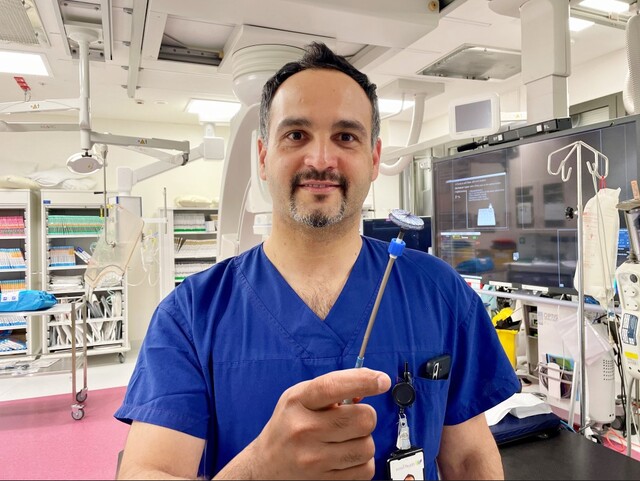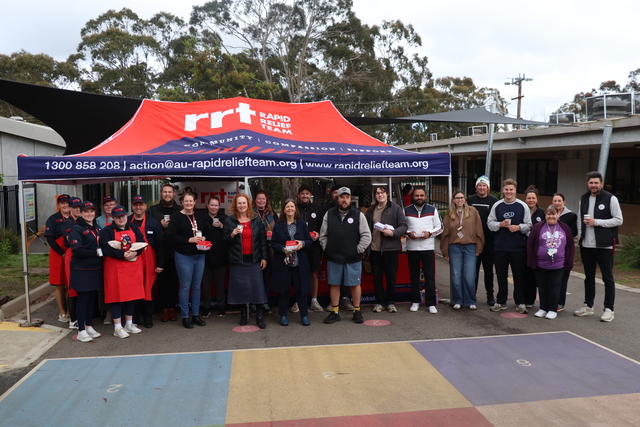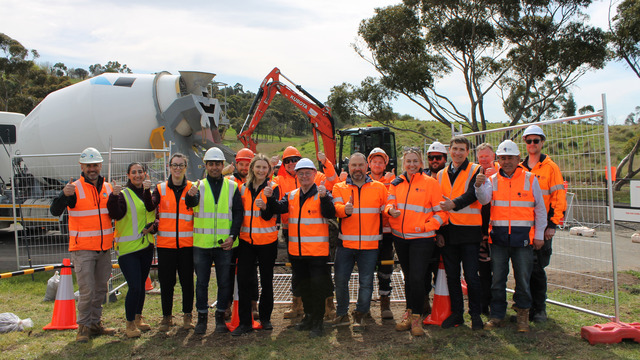Western Health is marking its one year anniversary since it introduced a new procedure that repairs the heart of stroke survivors.
One in five people have a patent foramen ovale (PFO), which is a small hole between the upper right and left chambers of a heart.
For many, there are no symptoms of this condition and it may not be discovered, but for others, it can lead to a stroke – especially in those in their 20s, 30s, and 40s.
Sunbury resident Bojan Jankovic, who is in his 30s, was one whose condition led to a stroke earlier this year.
“I had some chest pains in January and went to see a local GP and had some scans, and the stress test – they scanned my heart and arteries in a CT scan,” Mr Jankovic said.
“In June, I ended up having a stroke, they investigated further and found … the hole in my heart,” he said.
After receiving medical attention, Mr Jankovic said he was provided the options of open heart surgery or a treatment being trialled at Western Health called PFO occlusion.
This treatment involves keyhole surgery and inserting a small device called a PFO occluder into the hole in the heart, filling the opening and preventing blood flow between the two chambers.
Mr Jankovic said that the treatment took one hour, where he then stayed at the hospital overnight and was put on his “merry way the next day”.
“Compared to having an open heart surgery, I wouldn’t have been back to work until next year, and having a young family, I didn’t really want to not be able to pay the bills … this procedure helped me to get back to normality and get back to what I was doing before the stroke,” he said.
Western Health cardiologist Samer Noaman said the team has performed 10 successful procedures since it was introduced in October.
The team consists of both neurologists and cardiologists.
“Part of my training was to close the holes of the heart with keyhole surgery rather than open heart surgery, which would save the patient the time, recovery, as well as making the experience less traumatic,” Dr Noaman said.
According to Western Health, Dr Noaman introduced the procedure to the hospital because he thought it was unfair that the communities in the west did not have the same access as others.







